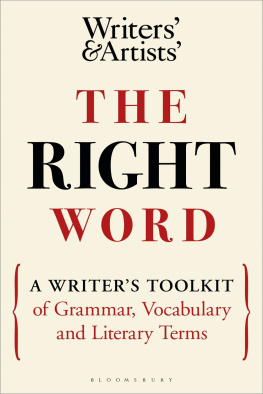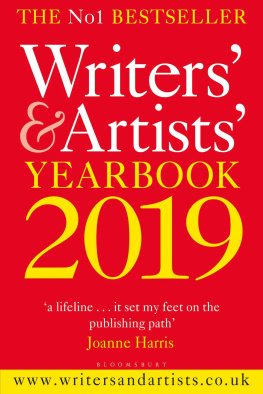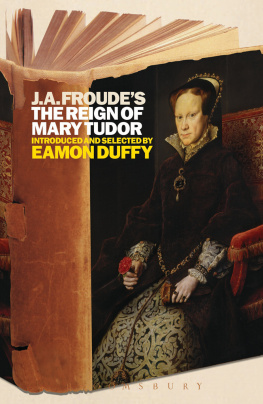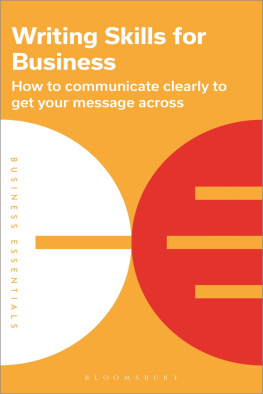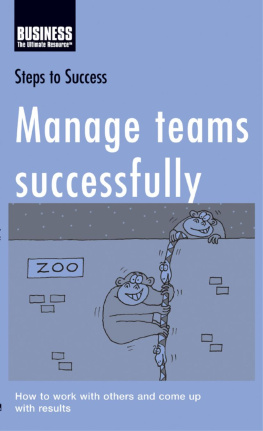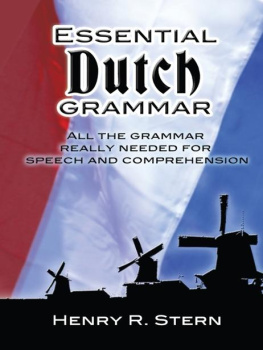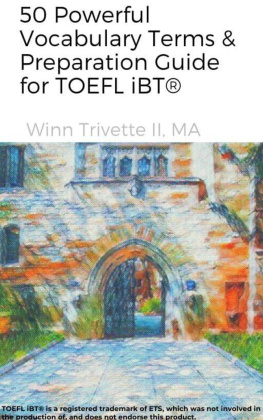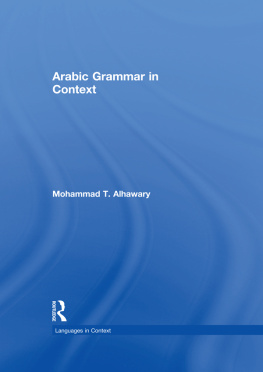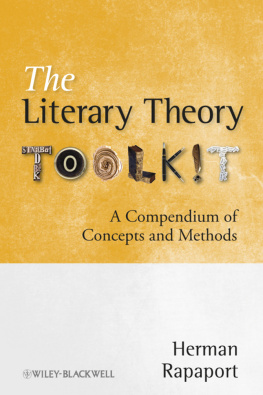Bloomsbury Publishing - The Right Word: A Writers Toolkit of Grammar, Vocabulary and Literary Terms
Here you can read online Bloomsbury Publishing - The Right Word: A Writers Toolkit of Grammar, Vocabulary and Literary Terms full text of the book (entire story) in english for free. Download pdf and epub, get meaning, cover and reviews about this ebook. publisher: Bloomsbury UK (Trade), genre: Children. Description of the work, (preface) as well as reviews are available. Best literature library LitArk.com created for fans of good reading and offers a wide selection of genres:
Romance novel
Science fiction
Adventure
Detective
Science
History
Home and family
Prose
Art
Politics
Computer
Non-fiction
Religion
Business
Children
Humor
Choose a favorite category and find really read worthwhile books. Enjoy immersion in the world of imagination, feel the emotions of the characters or learn something new for yourself, make an fascinating discovery.
- Book:The Right Word: A Writers Toolkit of Grammar, Vocabulary and Literary Terms
- Author:
- Publisher:Bloomsbury UK (Trade)
- Genre:
- Rating:5 / 5
- Favourites:Add to favourites
- Your mark:
- 100
- 1
- 2
- 3
- 4
- 5
The Right Word: A Writers Toolkit of Grammar, Vocabulary and Literary Terms: summary, description and annotation
We offer to read an annotation, description, summary or preface (depends on what the author of the book "The Right Word: A Writers Toolkit of Grammar, Vocabulary and Literary Terms" wrote himself). If you haven't found the necessary information about the book — write in the comments, we will try to find it.
Bloomsbury Publishing: author's other books
Who wrote The Right Word: A Writers Toolkit of Grammar, Vocabulary and Literary Terms? Find out the surname, the name of the author of the book and a list of all author's works by series.
The Right Word: A Writers Toolkit of Grammar, Vocabulary and Literary Terms — read online for free the complete book (whole text) full work
Below is the text of the book, divided by pages. System saving the place of the last page read, allows you to conveniently read the book "The Right Word: A Writers Toolkit of Grammar, Vocabulary and Literary Terms" online for free, without having to search again every time where you left off. Put a bookmark, and you can go to the page where you finished reading at any time.
Font size:
Interval:
Bookmark:


Other Writers & Artists Titles Include
Writers & Artists Guide to Writing for Children and YA by Linda Strachan
Writers & Artists Guide to Getting Published by Alysoun Owen
Writers & Artists Guide to How to Hook an Agent by James Rennoldson
Writers & Artists Guide to Self-publishing by self-publishing experts
The Organised Writer by Antony Johnston
Upcoming Titles Include
Writers & Artists Guide to How to Write by William Ryan
The Writers Journal Workbook by Lucy van Smit
Writers on Writing: The Writers & Artists Book of Quotations
The Writers & Artists Yearbook and the Childrens Writers & Artists Yearbook
are published annually in July
You can buy copies of all these titles at your local bookseller or online at www.writersandartists.co.uk

Contents
PART I
Grammar Guide
PART II
Vocabulary Builder
PART III
Dictionary of Literary Terms
LIST OF CONTRIBUTORS
MAIN TEXT (chapters ) edited and rewritten
by Sarah Waldram, based on text by the Bloomsbury
Encarta Dictionary team.
Sarah Waldram is an editor who has worked on languagereference
books for Bloomsbury, Oxford University Press and
Collins among other publishers.
DICTIONARY OF LITERARY TERMS written by Alysoun Owen
with research and additional content from
Lauren MacGowan and Elaine Owen.
Lauren MacGowan joined the Writers & Artists team as
an editorial assistant in 2019 shortly after graduating from
Oxford Brookes University with a Masters in Publishing.
Alysoun Owen is the Editor of the Writers & Artists Yearbook
(published every July) and author of the Writers & Artists
Guide to Getting Published (2019).
Words matter. An appreciation of their subtle power is vital for anyone who seeks to use them.
David Hewson, Writing: A User Manual (2012)
This book is for writers: anyone who gathers words together in order to educate, or to entertain or to inform. Words and the ways in which they combine and mingle in a phrase, a statement, a sentence or a paragraph are the essential tools of any writers workbox: the ways in which they are grouped become the authors style. They can be used to be concise and precise or deliberately to obfuscate or shock, to confuse or amuse.
Between these pages are definitions, wordlists and the rules of English grammar how language is structured, how words are used and spelt and the typical ways in which sentences can be arranged and punctuated. Rules can be straitjackets. Creative writers novelists, dramatists and poets know that rules exist to be broken and circumvented. For example, the standard approach when punctuating speech in a novel might be to include single or double quotation marks, usually so it is clear who is speaking to allow the reader to follow the narrative. An experienced and talented writer can overturn such a convention for stylistic effect, to create greater immediacy and naturalistic speech patterns. An inexperienced writer might find it sensible to adhere to the conventions until they are more used to marshalling their text. Knowing the standard styles, formats and usage can be helpful. Once mastered they might be successfully sidestepped. Being au fait with grammatical norms makes life easier for you as a writer in your efforts to convey mood and meaning in prose.
This book is not a checklist of what you should follow every time you put pen to paper or tap on a keyboard. It is a celebration of words in all their magnificence. The English language makes claim to more than a million words, including terms that have fallen out of use and variant forms, of which it is estimated that around 170,000 are in current use. This lexicon can be fashioned and bent to each writers will to evoke atmosphere, tone, tension, emotion and meaning to suit their narrative.
Words change and usage develops. New words get created, others die back to become archaisms or anachronisms or less legitimate forms to do with shifts in spelling or meaning because of fashion or changes in culture and society. But there remain some underlying and unifying patterns and facts about grammar, structure, forms and the terms we use to describe these elements. You dont need to know the definition of an oxymoron or chiasmus to make use of such literary devices effectively. You wont be judged wanting if you are unaware that a sentence can include a subject, a predicate, and subordinate clauses or that there are five basic types of adverb. You can be a skilled writer who has great command of their work, and not know or care what transitivity means or how to identify an auxiliary verb. (Though you can find out what these are in this books Glossary.)
But knowledge of parts of speech and punctuation, literary devices, clichs to avoid for example, combined with an interest in how words are formed might make you understand your craft better. This knowledge is likely to improve your writing and might mean you enjoy being a writer even more.
Why does grammar matter to the writer? Apart from the joy that words can bring, it matters because text should be meaningful and achieve what it sets out to do for the audience for which it is intended. The right word is le mot juste for the context in which it is used. Its the word that feels right and reads right to its writer-creator and to its readers.
He who writes badly thinks badly.
William Cobbett
A Grammar of the English Language (1819)
The controversial English pamphleteer William Cobbett, in a letter to his son James, observes the link between clarity of thought and clarity of writing. He emphasises paying attention to grammar as a means of dispelling confusion, and pours scorn on those in public life who omit to do so.
Whatever one makes of Cobbetts political views, his ideas on grammar still resonate today. This is especially true for writers looking to connect with their readership. Put simply, grammar enables users of language to combine words in ways that convey meaning clearly.
There is no mystery to grammar. Those who learn English as their first language from native speakers absorb its essentials while they are picking up the vocabulary required for basic communication. For writers, however, there are good reasons to explore English grammar more deeply. Getting to grips with grammar improves ones understanding of the English language and consequently enriches ones writing.
As a starting point, this chapter looks at the basic elements of the English sentence and explains terms used to describe these elements. Well present these in the traditional way, as parts of speech , even though, as touched on in , some experts favour other approaches to analysing the language.
The parts of speech
The parts of speech , sometimes referred to as word classes , comprise (in the order they appear in this chapter):
nouns
verbs
adjectives
adverbs
pronouns
prepositions
conjunctions
interjections.
Its worth remembering that a words part of speech gets defined only in use. Of course, its safe to say that a word like plumber is a noun, because its difficult to think of a case where it could be anything else. But a word like up can be a preposition, a verb, an adjective or an adverb, depending on the context:
Font size:
Interval:
Bookmark:
Similar books «The Right Word: A Writers Toolkit of Grammar, Vocabulary and Literary Terms»
Look at similar books to The Right Word: A Writers Toolkit of Grammar, Vocabulary and Literary Terms. We have selected literature similar in name and meaning in the hope of providing readers with more options to find new, interesting, not yet read works.
Discussion, reviews of the book The Right Word: A Writers Toolkit of Grammar, Vocabulary and Literary Terms and just readers' own opinions. Leave your comments, write what you think about the work, its meaning or the main characters. Specify what exactly you liked and what you didn't like, and why you think so.

